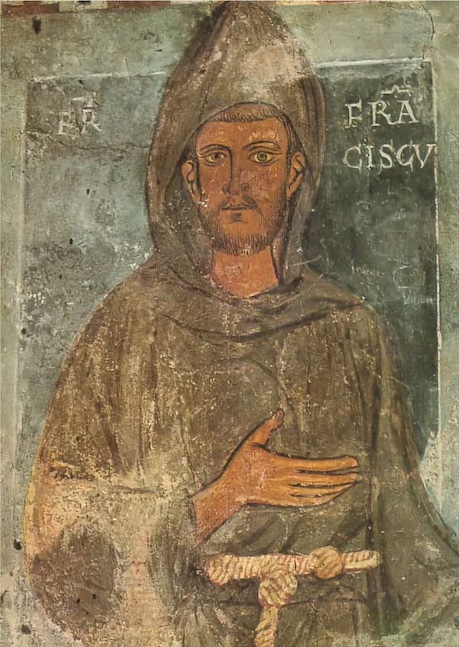
Philippians 4:10–23
10 I rejoiced in the Lord greatly that now at length you have revived your concern for me. You were indeed concerned for me, but you had no opportunity. 11 Not that I am speaking of being in need, for I have learned in whatever situation I am to be content. 12 I know how to be brought low, and I know how to abound. In any and every circumstance, I have learned the secret of facing plenty and hunger, abundance and need. 13 I can do all things through him who strengthens me. 14 Yet it was kind of you to share my trouble. 15 And you Philippians yourselves know that in the beginning of the gospel, when I left Macedonia, no church entered into partnership with me in giving and receiving, except you only. 16 Even in Thessalonica you sent me help for my needs once and again. 17 Not that I seek the gift, but I seek the fruit that increases to your credit. 18 I have received full payment, and more. I am well supplied, having received from Epaphroditus the gifts you sent, a fragrant offering, a sacrifice acceptable and pleasing to God. 19 And my God will supply every need of yours according to his riches in glory in Christ Jesus. 20 To our God and Father be glory forever and ever. Amen. 21 Greet every saint in Christ Jesus. The brothers who are with me greet you. 22 All the saints greet you, especially those of Caesar’s household. 23 The grace of the Lord Jesus Christ be with your spirit.
One of the more fascinating articles I think I have ever read was written by Daniel Cordaro for Greater Good Magazine: Science-Based Insights for a Meaningful Life. It is entitled “What If You Pursued Contentment Rather Than Happiness?” In it, Cordaro discusses how, while at Yale University, he led a research team seeking to understand the human mind throughout time and culture.
In their research, one of the last groups they studied was a “remote group of former nomads high in the Himalayas of Eastern Bhutan.” This group was “one of three uncontacted villages on planet earth.” They traveled deep into the Himalayas and came to the village of around 200 families. There, they opened up their laptop and exposed the villagers “dozens of facial and vocal expressions.” These folks had “no electricity, no internet, no cell phones, no printed media—nothing.”
Cordaro and his team were impressed by how accurately these villagers identify the various emotions expressed in image and sound. He writes:
But there was one emotion that didn’t behave like all the others. It was different.
The emotion was contentment, and while we were working on translating our study, our guide, Dr. Dorji Wangchuk, stopped for a moment when we reached this word. “In our culture, this emotion is very special. It is the highest achievement of human well-being, and it is what the greatest enlightened masters have been writing about for thousands for years.” Now that was a conversation starter, and I asked him for the translation. “It’s hard to translate it exactly, but the closest word is chokkshay, which is a very deep and spiritual word that means ‘the knowledge of enough.’ It basically means that right here, right now, everything is perfect as it is, regardless of what you are experiencing outside.”
This was the moment when lightning struck for me, and I immediately felt chills down my entire body. No matter where I went on planet earth, all of the cultures I interacted with revered contentment as one of the highest states to cultivate in life. Yet in the West, we were obsessing about happiness—and feeling more anxious, depressed, and stressed. I decided to dig in and see what kind of ancient secrets could be revealed through a scientific investigation of the most underappreciated emotion in history: contentment.
In fact, Cordaro and his team finally concluded that human beings around the globe adopt one of two basic strategies for living life: “More Strategy” or “Enough Strategy.”
In “More Strategy,” people want more and more and more. The problem with “More Strategy,” he writes “is that it’s simply not sustainable.” In “Enough Strategy,” people are content. One more statement from Cordaro:
While poring through thousands of years of ancient wisdom traditions, my team and I were shocked to find that the ancients almost never used the word happiness when they were talking about what it means to be well. More than 90 percent of the time, they used the word contentment, and described it as a state of “unconditional wholeness,” regardless of what is happening externally.[1]
This is absolutely fascinating.
It seems to me that contentment is most challenged by two realities: lack and gain. When we have little. When we have much.
Interestingly, in the prison cell from which he wrote the letter to the Philippians, Paul experienced both of these realities. He experienced the lack that prison presents its occupants. And he experienced the gain of a very kind gift sent by the Philippians through their courier, Epaphroditus.
In our text, Paul concludes his letter by reflecting in the crucible of the collision between lack and gain. And what he says is profoundly helpful to us in the living of these days.





